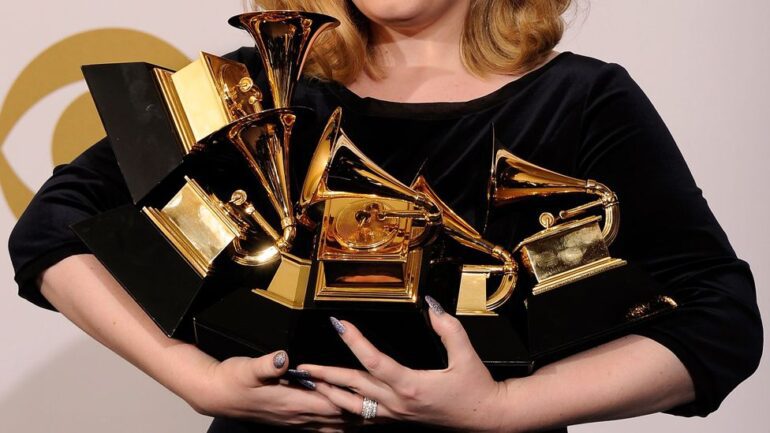TL;DR:
- The Recording Academy introduces “Artificial Intelligence (AI) Protocols” for the Grammy Awards.
- Only “human creators” are eligible for awards; AI-generated works are excluded.
- AI-inspired works are accepted if significant human contribution is present.
- Changes in other categories include a 20% minimum human creator involvement for “Album of the Year.”
- “Big Four” categories were reduced to eight nominees to elevate competition.
- The “Best Music Film” category was revised to accommodate evolving music documentaries.
- Music videos in visual albums are now eligible for awards.
Main AI News:
As the music industry embraces the transformative power of artificial intelligence (AI), the Grammy Awards, renowned for honoring musical brilliance, confront the challenge of preserving the human touch in this rapidly evolving landscape.
The Recording Academy recently unveiled its groundbreaking “Artificial Intelligence (AI) Protocols” to address the impact of AI on music creation. Under these new rules, only “human creators” are deemed eligible for the coveted Grammy Awards, excluding works without human authorship from consideration in any category.
The decision reflects the Academy’s steadfast commitment to celebrating the authentic emotional depth that stems from human creativity. While AI can undoubtedly augment musical exploration, it is the human spirit that resonates with audiences on a profound level.
Nevertheless, the Recording Academy acknowledges the potential of AI as a collaborative tool. AI-inspired works can still be considered if a human creator has made a significant contribution to the music or lyrics, striking a harmonious balance between technological innovation and human expression.
Paul McCartney’s revelation about the creation of a new Beatles record using AI technology, alongside John Lennon’s old demo, has sparked intrigue and conversations about the evolving face of music creation. This exemplifies the delicate interplay between AI and human ingenuity that the industry now navigates.
The music world has witnessed AI’s astonishing ability to replicate iconic artists, such as the late Notorious BIG and R. Kelly, raising concerns about artistic authenticity. By emphasizing human involvement, the Recording Academy aims to preserve the integrity of the creative process and uphold the true essence of musical brilliance.
Apart from the AI rule, the Academy has also introduced significant changes to other award categories. To be eligible for the prestigious “Album of the Year” category, a music creator must now account for at least 20 percent of the work, encompassing credited artists, featured artists, songwriters, producers, engineers, mixers, and mastering engineers. This move sets a new standard for recognition, ensuring that genuine contributors receive the acclaim they deserve.
In an effort to enhance competition and elevate the distinction of nomination, the Academy has reduced the number of nominees eligible for the “Big Four” categories (“Best New Artist,” “Album of the Year,” “Song of the Year,” and “Record of the Year”) from ten to eight. This strategic adjustment raises the bar for musical excellence and places the spotlight on the most deserving talents.
Furthermore, the Academy has adapted to the changing landscape of music documentaries. The “Best Music Film” category now acknowledges the blend of actual and archival footage commonly seen in music documentaries. This recognition aligns with the dynamic storytelling methods employed in productions like Apple TV’s “Billie Eilish: The World’s a Little Blurry.” However, biopics and dramatic feature films remain outside the purview of this category.
Additionally, music videos that form part of a visual album are now eligible for awards, exemplified by Beyoncé’s “Lemonade” film in 2016. This expansion accommodates evolving music presentation styles and honors artists who push the boundaries of creative expression.
The Recording Academy’s dedication to upholding its high standards and adapting to the evolving music landscape deserves applause. By embracing AI within defined boundaries and celebrating the enduring power of human creativity, the Grammy Awards remain a beacon of excellence, inspiring generations of musicians and listeners alike.
Conclusion:
The Recording Academy’s implementation of “Artificial Intelligence (AI) Protocols” reflects its commitment to preserving the authenticity and emotional depth of human creativity in the music industry. By embracing AI within defined boundaries and emphasizing human involvement, the Grammy Awards continue to stand as a beacon of musical excellence. These changes signify the Academy’s proactive response to the evolving market dynamics, ensuring that deserving talents and genuine contributors are celebrated and inspiring generations to come. The music market can expect an even greater emphasis on the significance of human artistic expression in the face of technological advancement.

